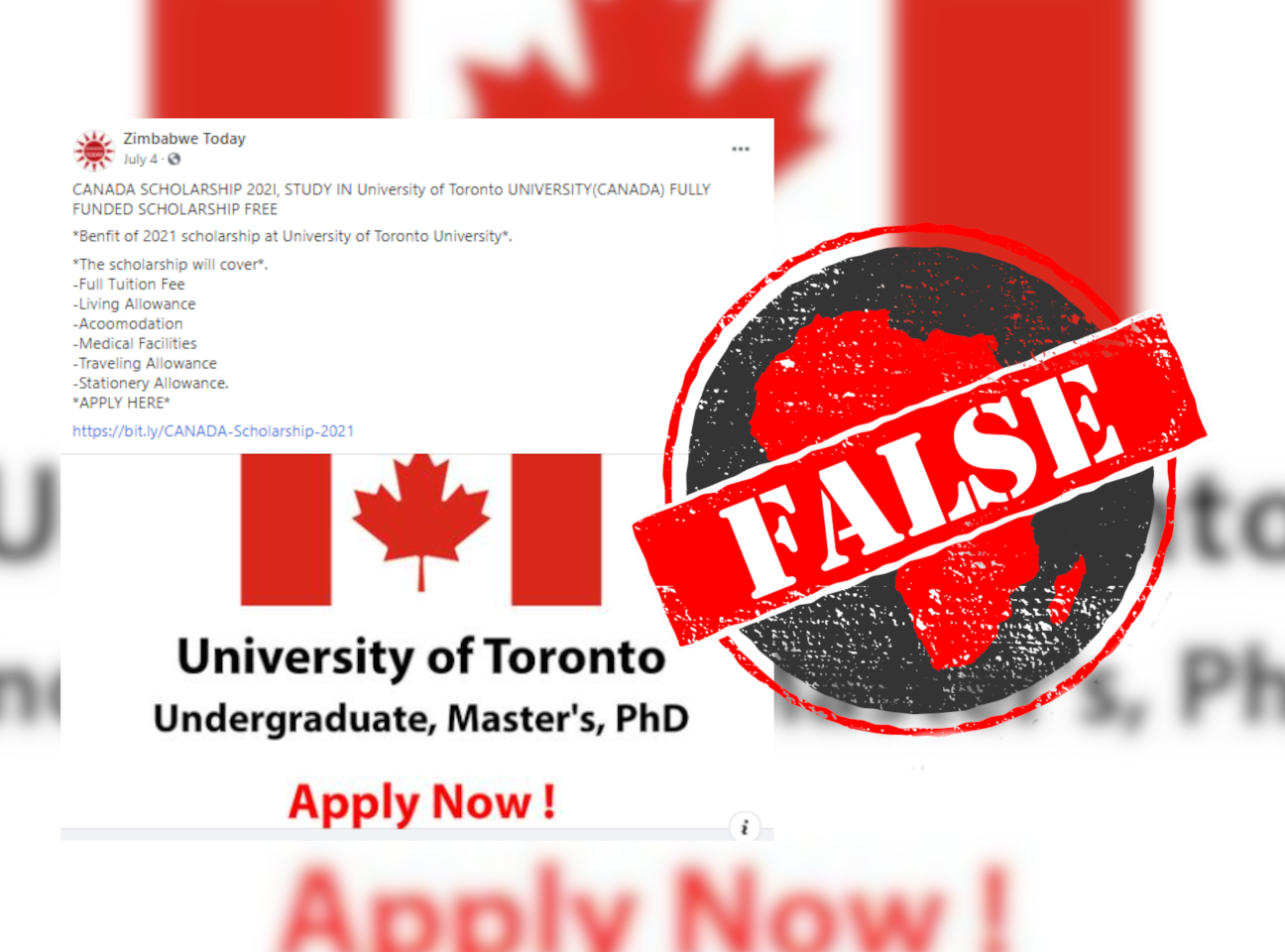Africa Check recently debunked posts shared on social media in Kenya advertising very generous – and bogus – scholarships at a Norwegian university.
Now our attention has been drawn to a similar promise shared by a Facebook page in Zimbabwe with over 700,000 members.
The post reads: “Canada scholarship 2021, study in University of Toronto University (Canada) fully funded scholarship free.”
The post includes a link to a webpage where those interested are invited to submit their personal details to “Study in McGill University Canada With Course of Your Choice At No Cost through-out The year program”.
It’s strange that the posts on Facebook say the scholarships are for the University of Toronto, but the webpage advertises McGill University. The two prestigious institutions are in different Canadian cities, over 500 kilometers apart.
The posts are also full of grammatical errors and misspellings, another warning sign for social media users to be suspicious. But could the scholarships be genuine?

Fishing for personal details
On the webpage linked to on social media, applicants are asked to fill in their name, email address, country of origin and the courses they wish to take.
But, like the page promising scholarships at Oslo University, any random answer leads to the next step in the application, even leaving spaces blank.
In the next section, applicants are asked to fill in details such as employment and marital status and age range.
But after filling in these details, they are told that the “visa form” will only be available if they share the link with 15 friends or five groups on WhatsApp.
This is a clear example of engagement bait – Facebook posts that ask people to like, share, or comment. This increases the post’s reach but the reward promised is fabricated.
Posts like this might even be an attempt to gather personal details that can be used in identity theft.
To protect yourself against similar online scams, read our guide to Facebook scams and how to spot them.
Republish our content for free
For publishers: what to do if your post is rated false
A fact-checker has rated your Facebook or Instagram post as “false”, “altered”, “partly false” or “missing context”. This could have serious consequences. What do you do?
Click on our guide for the steps you should follow.
Publishers guideAfrica Check teams up with Facebook
Africa Check is a partner in Meta's third-party fact-checking programme to help stop the spread of false information on social media.
The content we rate as “false” will be downgraded on Facebook and Instagram. This means fewer people will see it.
You can also help identify false information on Facebook. This guide explains how.




Add new comment